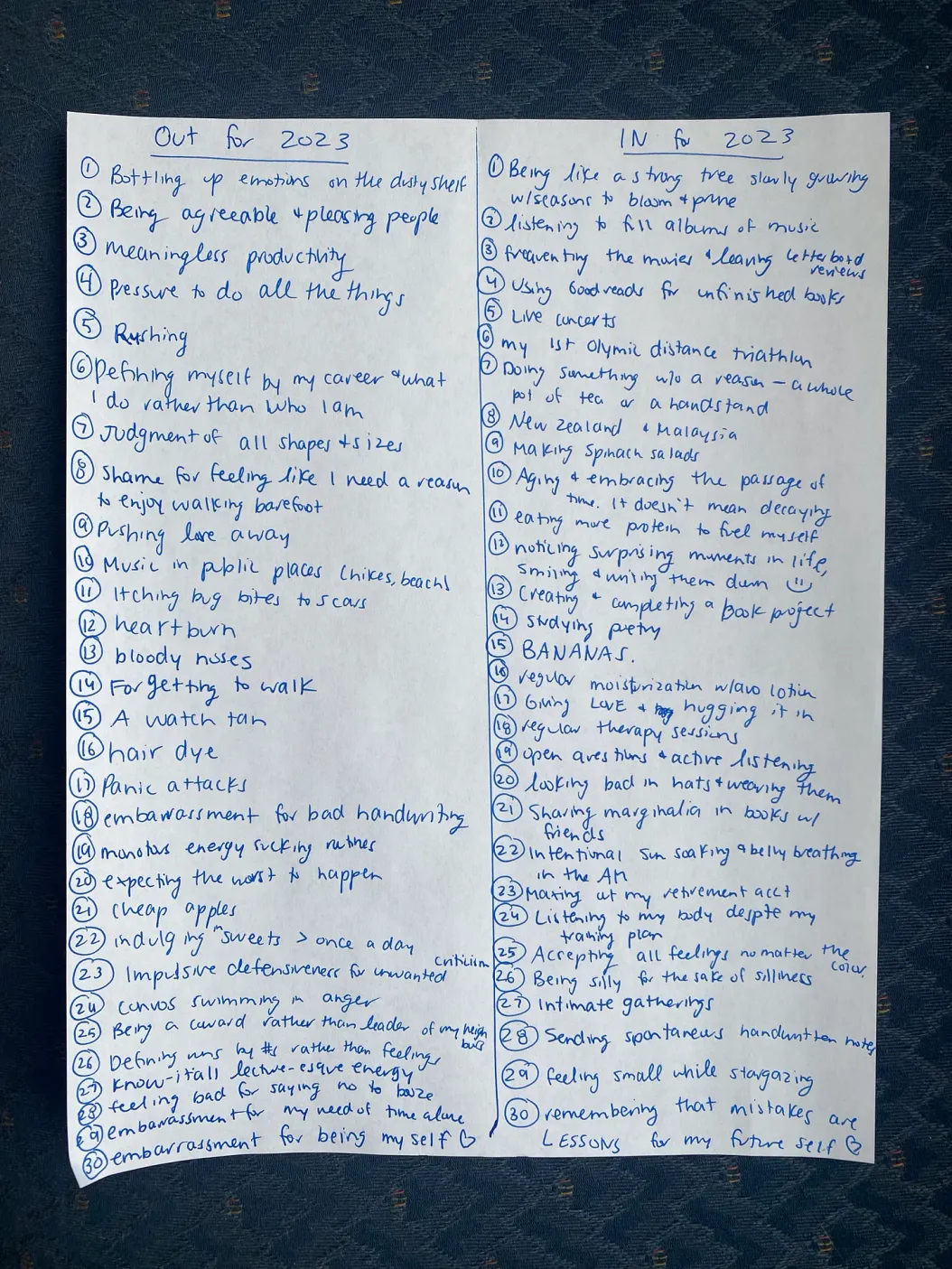Hello fellow learner,
Greetings from Chicago!
My parents and sister visited my brother, Mitch, and I over the weekend. It was a hoot with some tasty foods and sunny walks. We biked 8.5 miles from the West Loop to the Navy Pier and up the shore to the Belmont Harbor. It was apparently one of the last warmer days in Chicago and I spent it doing one of the things I love most, with those that I love most, along one of my favorite places in the city–– the lakefront. I am overflowing with gratitude.
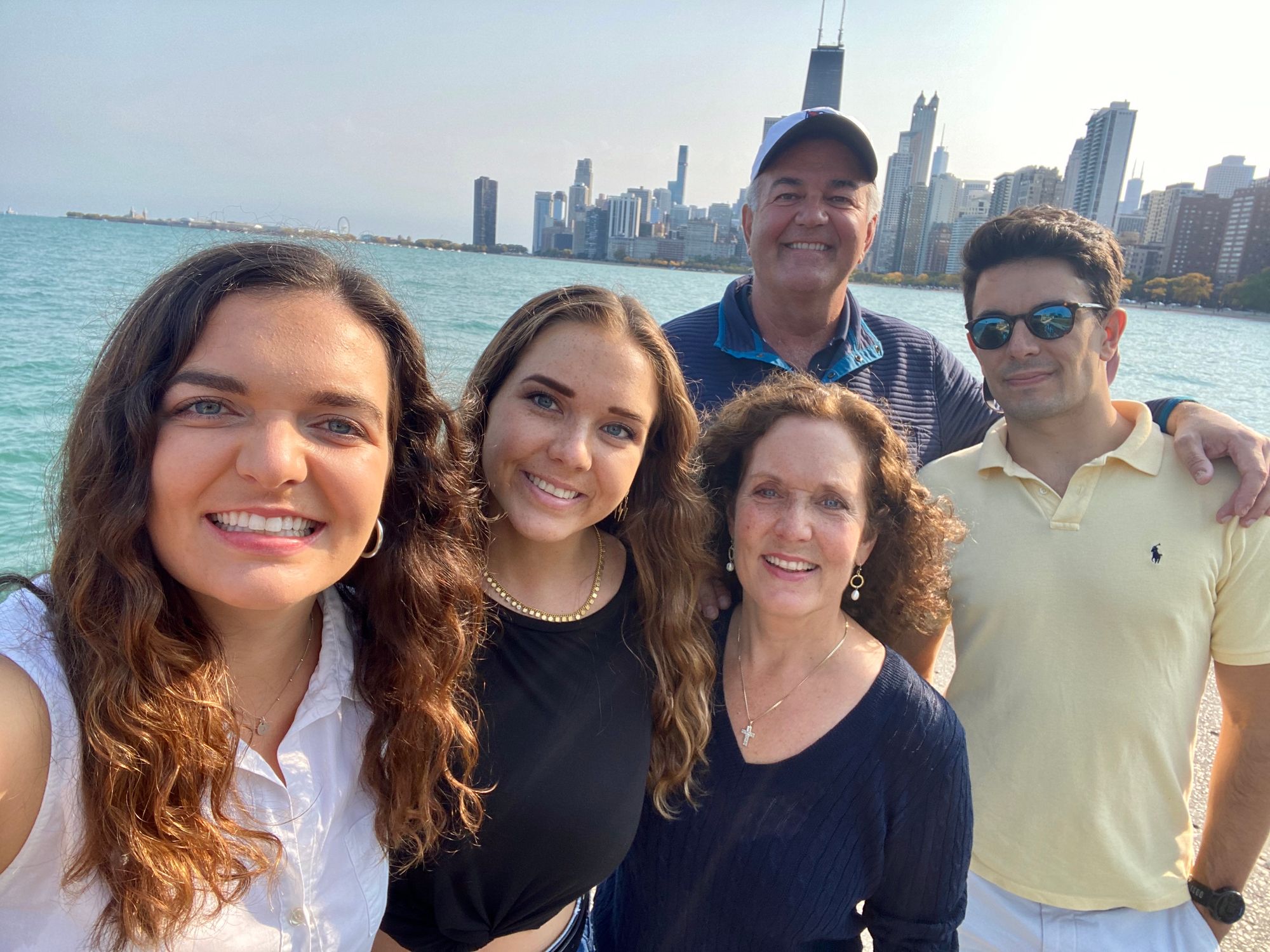
Here's a snapshot of everything in store for this issue:
🦸♀️ Imagining superpowers
✅ Habits vs. addictions
📈 Explaining the Ego and the Self
🚧 The origin of Lifequakes and the Midlife Crisis
⏳ Why life is in the transitions
Now, let’s dive into letter 29. Enjoy!
🖊 Writing
I reinforced my daily writing habit and shared five Ship Its. Each of the pieces is less than 400 words. I explained my rationale behind starting it here. I never thought about how I would finish this challenge. I have completed 57 weekdays of consecutive shipping. I have decided if I end at 100 if will be before the new year. That is my new goal.
This past week, I wanted to lean into my imagination and thought of some superpowers to visualize having. These included: teleportation traveling, fearlessness, invisibility, photographic memory, and shapeshifting.
I was curious about what others thought and ran a poll on Twitter:
These results showed that over half (52%) of voters would have preferred teleportation traveling over invisibility, photographic memory, and fearlessness. There might have an underlying bias due to the COVID-times with everyone being deprived of travel. However, teleportation would surely be much safer and efficient.
Which superpower would you like to have and why?
✅ Habits vs. ❌ Addictions
As I mentioned in Letter 28, I started actively running in July. I shared 15 lessons from running 100 miles in August. I was really enjoying it and looking forward to it each day. It was all too good to be true until the ball of my foot met a pinecone in the park on Tuesday.
I rolled my ankle and then injured my knee falling, so I will be taking a leave of absence from running for a bit. Those dang pinecones!
All was swell up until this point. The first time I rolled my ankle was at soccer practice in 8th grade. This was horrific for someone who's never broken a bone but left me feeling broken. I vividly remember that immediate jolt of pain as I instantly went horizontal to the floor. This past week, the lack of running has thrown my routine off. To be honest, it has created a wonky week.
It got me thinking: are we addicted to our routines? Those constant behaviors that make up each of our days. They make us feel deprived without them.
That one time I ran out of sleepy tea, I panicked. When I left my sleep mask in Michigan, I had to order a new one. If my journal disappeared, I'd feel like life wouldn't be processed without it. I don't think I'd stay nearly as hydrated if my new Hydro Flask was stolen.
The words “habit” and “addiction” get interchanged, but there is a significant difference between the two. Habits can be negative or positive. While addictions are only negative and associated with a strong craving and necessity. The trick to identifying, which is which depends on the amount of time and effort it takes to break one.
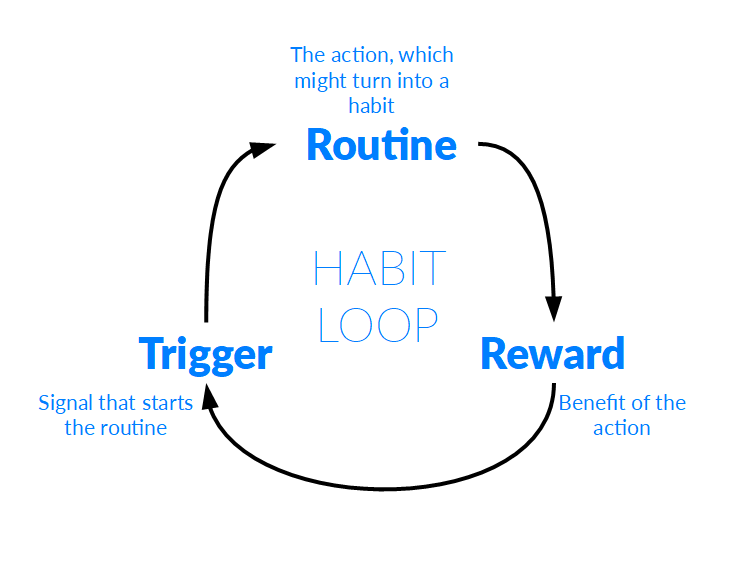
When I started my running habit, after putting on my shoes in the morning, it triggered that it was time to run. I was rewarded with some endorphins that made me want to come back to do it again the next day. My prefrontal cortex made the decision to do this every day, so there wasn't any decision-making after the loop began. There is a strong effect feeling like a necessity for the reward without running, so that is also part of why I miss it.
In the meantime, you can find me on my couch with lots of pillows to elevate, an Ace bandage wrapped up, and icing. I hope I can heal to finish training for this half-marathon. It's not the end of the world if not, but I was starting to feel slightly addicted to this runner's high.
What are the triggers, actions, and rewards in your routines?
📖 Reading
I already shared some favorite insights from The War of Art by Steven Pressfield in letter 15 though this has been such a great book that I want to share more. I missed some key findings the first time around.
First things first, this quote below helps me write this newsletter even when I don't feel like it:
Someone once asked Somerset Maugham if he wrote on a schedule or only when struck by inspiration. "I write only when inspirations strikes," he replied. "Fortunately, it strikes every morning at nine o'clock sharp."... by performing the mundane physical act of sitting down and starting to work, he set in motion a mysterious but infallible sequence of events that would produce inspiration, as surely the goddess had synchronized her watch with his. He knew if he built it, she would come.
After re-reading the third book: Beyond Resistance The Higher Realm, I realized I didn't spend enough time questioning to comprehend it. Resistance is what stands between the life we live and the unlived life within us. Pressfield believes that the Self is united with a higher being (God) and that this is where ideas and dreams come from. It is by demolishing the Ego that we can become closer to our personal destiny.
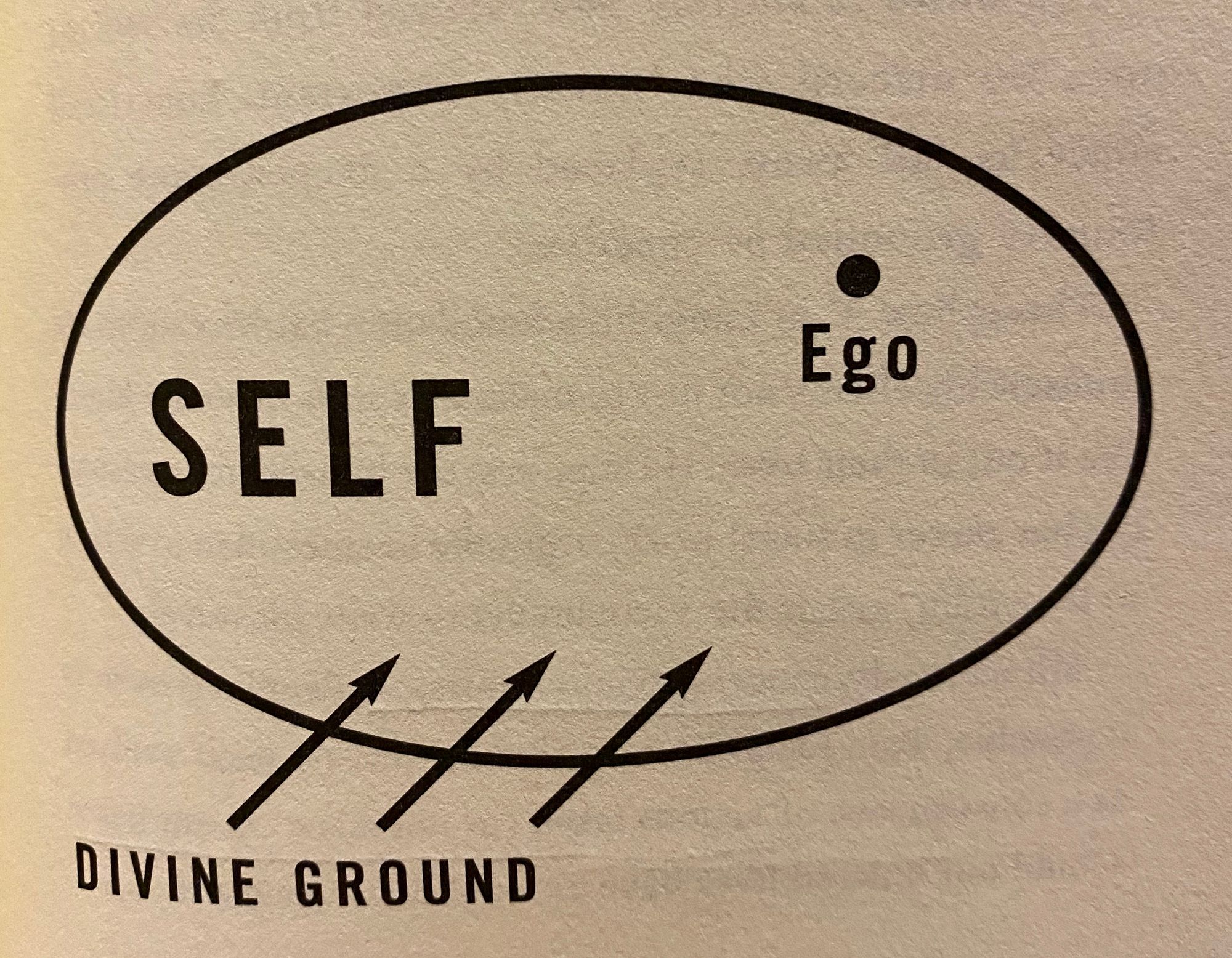
The Self looks out for our future and who we can become while the Ego hates this. They don't want to go "out of business" per se as the Self evolves, learns, and grows. When becoming more awake, the more the Ego disappears.
🔎 Word to define
Lifequake: a massive change that leads to a life transition. Three to five of these occur across our life, according to author Bruce Feiler.
Some are voluntary, while others are involuntary disruptors. These could be medical issues, career shifts, change in sexual practices, divorce, social movements, or external events like a tornado, a financial crisis, a downsizing, or a pandemic.
The signature finding of Feiler’s study is that the average length of the transitions is five years. This means we spend half our lives in transitions. The entire world is going through a life transition together right now making it a memorable point in the history books.
In 1957, the idea of the “midlife crisis” originated from psychoanalyst Elliott Jaques. He claimed that people in their mid-30s go through a depressive period brought on by contemplating mortality.
This makes me feel a lot better as I head into my first “quarter-life crisis” in the coming five months. I’m glad that it is “normal” to have multiple lifequakes across a lifetime.
🌟 Quote to inspire
“Life is in the transitions. We can’t ignore these central times of life; we can’t wish or will them away. We have to accept them, name them, mark them, share them, and eventually convert them into fuel for remaking our life stories.” – William James
💭 Question to ponder
What lessons have you learned from a unique transition in your life?
I appreciate you reading this! If certain ideas resonated or you have feedback to improve my future newsletters, I’d love you to leave a comment, reply to this email, or send me a message on Twitter @JenVermet.
Never stop learning 😁
Until next week,
Jen
P.S. here's an action shot pedaling away on some Divvy bikes yesterday.
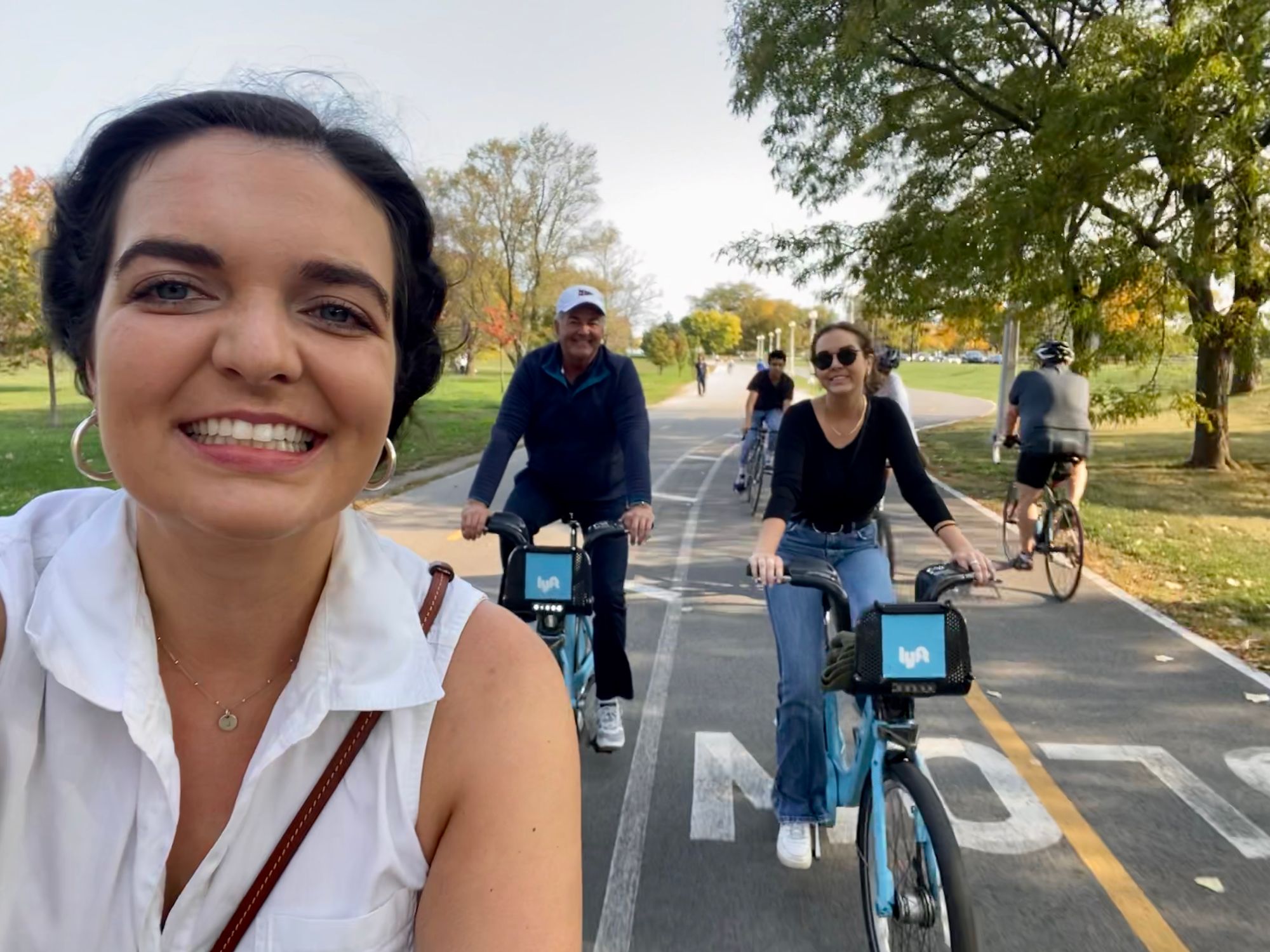
If you’re reading this because someone shared this newsletter with you or you clicked a link somewhere, welcome! I’d love it if you subscribed below to receive future updates:
